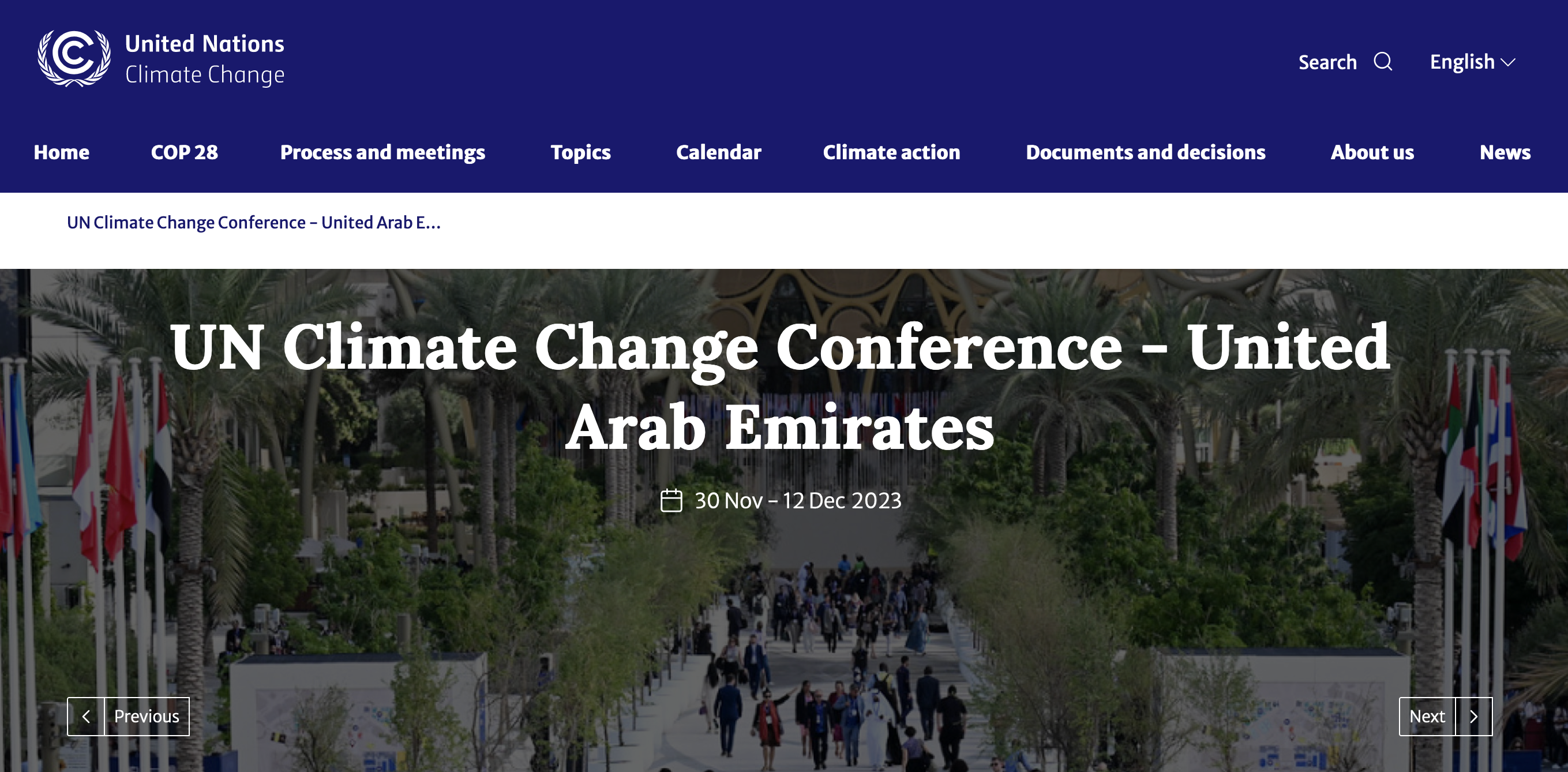
My ultimate red lines for COP28
Open letter from the climate system to Sultan Al Jaber, President of COP28
3 December 2023
Dear Sultan Al Jaber,
As climate scientists, we welcome your commitment to develop at COP28 a real plan to achieve the goals of the Paris Agreement. We know you have met many different Parties to the Paris Agreement over the past year, and they are often represented by tough negotiators.
We are sorry to have to inform you that you have in front of you representatives of the most difficult Party. It is a Party which has only red lines, and absolutely no flexibility.
This Party is called the climate system, and it only obeys the laws of nature (physics, chemistry, and biology).
We will focus this brief message on mitigation.
Adaptation to climate change is essential to decrease the severity of impacts. It has to take place, and it must receive appropriate funding. But adaptation has hard and soft limits, and it would become extremely difficult and costly beyond 1.5°C warming, as demonstrated by the IPCC Special Report on 1.5°C warming.
Already today, we are seeing increasing losses and damages, even at 1.2°C warming. The loss and damage discussion would not have become so difficult if the warming had been stopped earlier.
Keeping the 1.5°C goal alive is essential to keep adaptation simply possible.
The gist of the climate system behaviour is summarised by these animated CO2 & temperature spirals (see: https://openclimatedata.net/climate-spirals/concentration-temperature/). As the CO2 concentration increases, so does the global temperature. The CO2 concentration plays the role of a thickening thermal insulation layer around the planet.
The CO2 concentration has increased by 50% since coal, oil, and gas started to be used on a massive scale, while deforestation also contributed. In response, the global temperature has increased by almost 1.2°C, and it will continue to increase as long as the CO2 concentration increases. You know very well which impacts accompany this warming, and why the 1.5°C goal was adopted: it was not adopted because it was easy to achieve, but because of the severity of the damages we can avoid by not crossing that warming level.
If humanity wants to prevent overshooting the 1.5°C goal, it needs to make sure the CO2 concentration stops to increase by 2050 at the latest. This means reaching global net zero CO2 emissions no later than 2050, together with significant decreases in the emissions of other greenhouse gases (methane, etc.).
Global net zero by 2050 means that the EU, USA, and other developed countries need to reach the net-zero level significantly earlier than 2050, for equity reasons.
The climate system does not do politics. It does not play with words. It only understands real emission or absorption of greenhouse gas molecules. Net zero means exactly what those words mean: not a single tonne of CO2 that is not 100% absorbed safely and permanently can be emitted.
We insist: carbon storage means permanent storage, not storage in a depleted oil well to extract more oil out of it, nor storage in a forest or a nature-based solution which will burn or be affected by climate change at the next opportunity. As the storage capacity which is permanent and safe is limited, as shown in 2005 already by the IPCC Special Report on CO2 capture and storage, net zero is not very different from zero.
Which means that what the climate system needs to keep the 1.5°C goal alive is not only much more renewables, but also phasing out fossil fuels, all of them, coal, oil, and gas, plus stopping net deforestation by 2050. A very small fraction of the fossil fuels we use today might still be in use by then, on the condition that their emissions would be 100% captured and stored safely and permanently.
Speaking on behalf of the climate system, this our red line: humanity needs to agree on the phasing out of fossil fuels by 2050, and on stopping net deforestation at the same time.
Thank you for your attention, your understanding, and the courage you will need to help the international community at COP28 respecting this red line, our ultimate red line, if you want to keep our planet inhabitable, leaving no one behind.
On behalf of the climate system, signed: Prof. Jean-Pascal van Ypersele (UCLouvain, Former IPCC Vice-Chair) and Prof. Michael E. Mann, Presidential Distinguished Professor of Earth and Environmental Science, University of Pennsylvania
_____________
Follow Michael E. Mann on Twitter or Facebook to be notified of new blog posts, or subscribe by RSS.

This work is licensed under a Creative Commons Attribution 4.0 International License.


